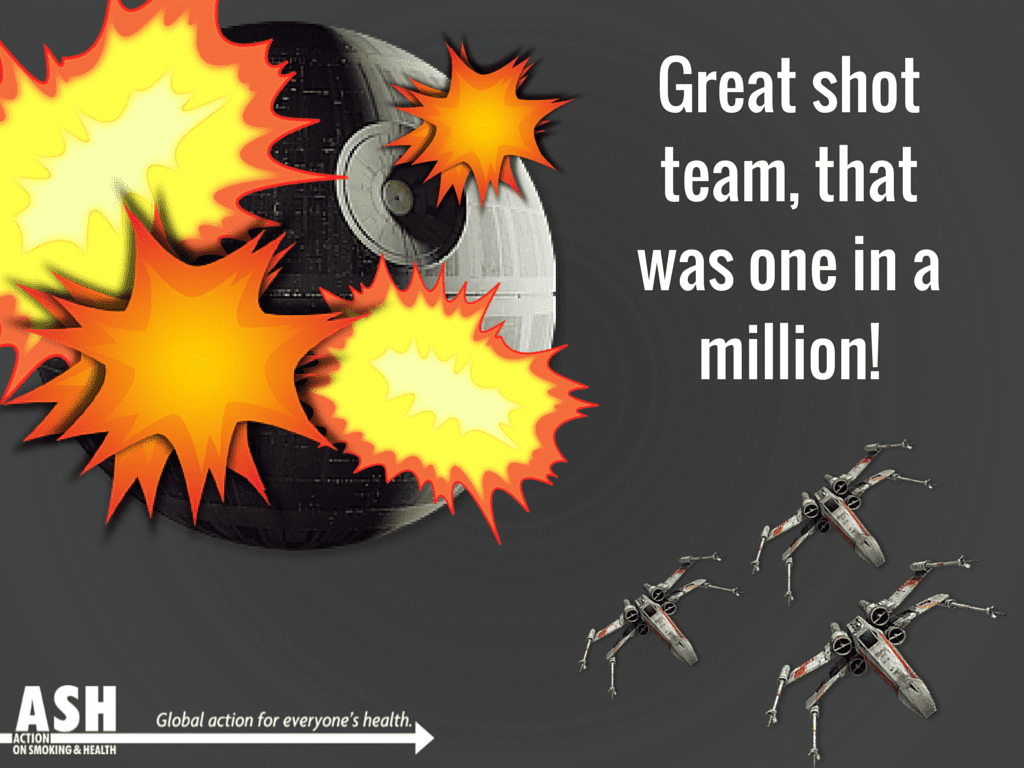November 9, 2015
Last week, after many years of painful negotiation, the final text for the Trans-Pacific Partnership (TPP) Agreement was released. This is the text that the U.S. Congress and Parliaments from 11 other countries will consider. At the moment, it is far from a slam dunk that it will pass into international law.
ASH and the tobacco control community breathed a sigh of relief to see that the expected partial exemption for tobacco, limiting corporate rights to sue governments over anti-tobacco measures, is included. This is a first in the history of trade law, a huge victory for public health, and a terrific outcome from nearly five years of work here at ASH. We congratulate our partners, both individuals and organizations, who joined us in this fight from nearly every TPP country. 
Of course, this is not a perfect outcome. We sought more, and we will continue seeking more in future agreements. Please consider supporting ASH in this crucial fight by making a donation today. The Death Star has been destroyed, but Darth Vader (big tobacco) is still out there. With your help, we can ensure trade agreements support public health.
Below is a brief analysis of the TPP outcome as it relates to tobacco. There are still disconcerting aspects to the TPP for the future of tobacco control. But the tobacco industry views this outcome as a major defeat, and we will celebrate.
____________________________
Right to elect for exemption: The exceptions chapter Article 29.5 gives Parties the right to deny the benefits of the investor-state dispute settlement (ISDS) mechanism with respect to claims against tobacco control measures. The definition of “tobacco control measures” is robust, and includes alternative nicotine delivery devices (ANDs, often referred to as e-cigarettes). The language explicitly removes tobacco leaf from the exemption, i.e., trade in tobacco leaf is unaffected.
This falls well short of the full exemption for tobacco measures from the entire agreement proposed by Malaysia. However, it is a huge step forward for tobacco control from previous trade and investment agreements, and it is strong enough to invoke strong opposition from pro-tobacco industry politicians here in the U.S.
Aside from its application only to ISDS, the biggest weakness of the exemption is its status as an election for individual Parties. This leaves the door open to behind-the-scenes pressure by host governments, the tobacco industry and chambers of commerce to allow ISDS cases to proceed. Note that state-to-state disputes are not limited by this exemption.
Tariffs: Tobacco is treated like any other product in terms of tariff reduction. For the most part, this means that tobacco tariffs are reduced to zero, which produces a windfall of tobacco profits—unless there is a later compensating increase in domestic excise taxes. This explicit promotion of tobacco exports appears to violate the Doggett Amendment, a congressional limit on the authority of U.S. agencies to promote tobacco sales.
Other chapters: Tobacco is still treated like other products in the rest of the TPP, which signals that governments are still not recognizing that tobacco is unique in international trade (we want less, not more, and these same governments have agreed to this goal in the FCTC and other international instruments, such as the UN Sustainable Development Goals and the NCD Summit).
The failure to approve the full exemption will have consequences for tobacco control. For example, the chapter on regulatory coherence requires Parties to set up mechanisms for “interested persons” to provide input into regulatory oversight. This creates a direct conflict of law with FCTC Article 5.3, which requires Parties (11 of whom are also TPP Parties) to limit government interaction with the tobacco industry.
ASH continues to lead a coalition supporting a full tobacco exemption in all trade agreements and BITs. This work will have huge benefits in the future if fully implemented.